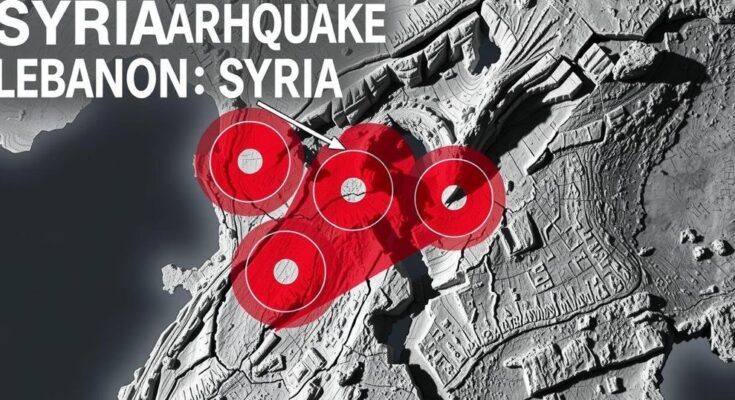The aftermath of the Assad regime’s fall in Syria has sparked significant political agitation within Lebanon, particularly among Sunni factions seeking to assert dominance. Led by influential figures like Sheikh Ahmad Shemali, calls for prisoner amnesty reflect a resurgence in Sunni activism against a backdrop of Hezbollah’s weakened position. The political landscape remains unstable, compounded by upcoming elections and the complex interplay between various sectarian groups in the region.
The situation in Lebanon has grown increasingly complex following the collapse of the Assad regime in Syria, which initially sparked celebrations in Sunni areas of Lebanon. However, this jubilation was quickly overshadowed by the calls for the release of Sunni Islamist prisoners from Lebanese state prisons. Sheikh Ahmad Shemali led one such protest, emphasizing the importance of amnesty for jail inmates. This rise of a proactive Sunni movement has been further galvanized by the jihadist group Tahrir al Sham’s ascent in Syria, which poses a challenge to the weakened Shiite Hizbollah movement.
While the Sunni community seeks to assert its influence, the current political landscape is fraught with challenges. The Shiite political body, led by President Nabih Berri of the Amal movement, remains reluctant to support amnesty for those imprisoned on terrorism charges, as such a move could signify a shift towards a renewed Sunni hegemony over Lebanon. The broader Lebanese political system is in turmoil, particularly as Hezbollah confronts diminished support following military setbacks against Israel.
The meeting between General Joseph Aoun, commander of the Lebanese Armed Forces, and Hezbollah’s Wafiq Safa, reflects the friction within Lebanon’s political and military contexts. Aoun’s agenda includes ensuring compliance with ceasefire agreements, while Safa’s refusal to disarm hints at underlying tensions. As Lebanon approaches presidential elections in January, the quest for consensus among the Christian community remains elusive, further complicating the political landscape.
The Sunni community’s newfound activism, spurred by Syria’s recent developments, raises fears regarding potential instability in Lebanon. Past events, including the ISIS incursion into Arsal, demonstrate the volatility in Sunni regions. Ahmad al Sharaa, a leader from the anti-Assad faction, has indirectly endorsed Aoun for the presidency, suggesting a cautious approach towards Lebanon. Even so, the unfolding events in Syria will continue to shape the dynamics within Lebanon, with both short- and long-term implications yet to be fully assessed.
The geopolitical climate in the Middle East has been significantly impacted by the collapse of the Assad regime in Syria, leading to heightened ambitions among various factions within Lebanon, particularly the Sunni community. Previously marginalized, Sunni Islamists are now demanding greater political representation and advocate for the release of prisoners linked to Islamism. The weakened position of Hezbollah, which faces internal and external pressures, provides a backdrop for these tensions and aspirations, highlighting the ongoing struggle for dominance among Lebanon’s diverse sectarian groups amidst instability in the region.
The ongoing instability in Lebanon, fueled by the aftermath of the Syrian regime’s collapse, illustrates a precarious political landscape, particularly for the Sunni community seeking to reclaim influence. While Hezbollah grapples with diminished authority, Sunni Islamist factions are making demands that challenge the existing power dynamics. The current political crisis, exacerbated by impending presidential elections, highlights the fragility of Lebanon’s governance as regional developments continue to exert pressure on local factions, potentially leading to further unrest.
Original Source: aurora-israel.co.il




